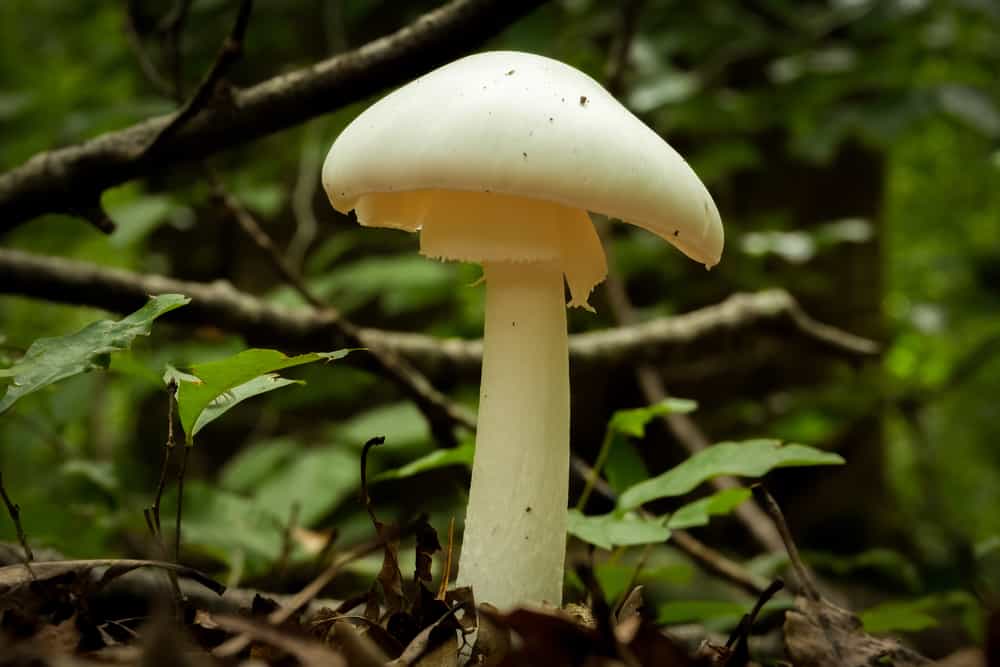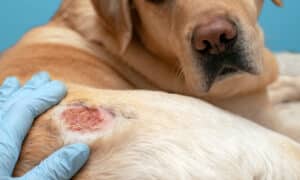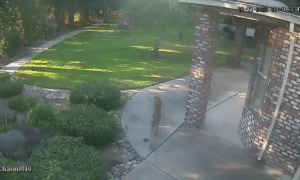“This post contains affiliate links, and I will be compensated if you make a purchase after clicking on my links.”
What happens when your previously healthy pet eats something he found in your yard and wakes up the next morning completely unresponsive?
That nightmare became a reality for Awilda Cadet, whose 80lb dog Davidson (affectionately known as Davey) started vomiting and displaying strange symptoms several hours after she caught him eating a wild mushroom.

Following a visit to Veterinary Care of Mount Pleasant, identification of the type of mushroom from Prospero Nursery in White Plains, New York and multiple consultations with the experts at Pet Poison Helpline, it was confirmed that Davey had ingested a highly poisonous fungus known as a Destroying Angel mushroom (Amanita bisporigera). It turns out the name is very descriptive.
Cadet and her fiancé, Pepi Blanco, were out in their yard when Cadet noticed Davey eating something. She immediately pulled it from his mouth but realized he had ingested some of the mushroom. The dog did not have an immediate reaction but started vomiting approximately seven hours after exposure and was “not moving” the next morning. That is when they realized it was serious.
“We have a big backyard, with deer and other animals, so we keep a very close watch on Davey when he’s out there,” said Blanco. “You’ve got to be really careful. If he had eaten the whole mushroom, he’d be gone.” Cadet and Blanco ended up finding more than 20 other Destroying Angel mushrooms in the yard and removed them.
“The Destroying Angel mushroom is one of the deadliest mushrooms to grow in nature,” said Dr. Ahna Brutlag, a board-certified veterinary toxicologist at Pet Poison Helpline. “It contains toxins known as cyclopeptides, or more specifically amatoxins. These basically target how the body makes life-essential proteins, with the main target organs being the liver and kidneys. Ingestion of small amounts can lead to severe and very rapid liver failure and death.” The veterinarians and board-certified toxicologists at Pet Poison Helpline are highly trained to assist in all types of toxicities, including Davey’s potentially fatal ingestion.
Animals that ingest these mushrooms will develop signs within 6-12 hours, which initially include vomiting and diarrhea. Next, they enter a 12-24-hour period of “false recovery” where they appear to be improving before they go into acute liver failure. At the end stage of the poisoning, their kidneys may fail as well. Death often occurs within several days of ingestion.
Davidson was incredibly lucky. After 17 rounds of a liver protectant, along with IV fluids, vitamin K1 (to help blood clotting), anti-vomiting drugs, and round-the clock care, the veterinary staff at Veterinary Care of Mount Pleasant were able to save Davidson’s life. His liver values and blood clotting ability began to improve significantly, and they were able to take him home after seven days.
“This military family did not give up on their pet, and neither would we,” said a veterinarian at Veterinary Care of Mount Pleasant. “An unusual poisoning such as this can be very difficult for a general practitioner to diagnose, so quick medical attention by your veterinarian, followed by advice from the team at Pet Poison Helpline, can really help save a pet’s life. Cases such as this can have quite different outcomes, so we are very pleased at Davidson’s recovery and prognosis for a long and healthy life.”
Pet Poison Helpline created “Toxin Tails” to educate the veterinary community and pet lovers on the many types of poisoning dangers facing pets, both in and out of the home. All the pets highlighted in “Toxin Tails” have been successfully treated for the poisoning and fully recovered.
About Pet Poison Helpline
Pet Poison Helpline, an animal poison control center based in Minneapolis, is available 24 hours, seven days a week for pet owners and veterinary professionals who require assistance treating a potentially poisoned pet. The staff provides treatment advice for poisoning cases of all species, including dogs, cats, birds, small mammals, large animals, and exotic species. As the most cost-effective option for animal poison control care, Pet Poison Helpline’s fee of $65 per incident includes follow-up consultation for the duration of the poison case. Pet Poison Helpline is available in North America by calling 800-213-6680. Additional information can be found online at www.petpoisonhelpline.com.























